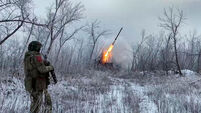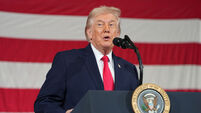Gold demand surges across the world as Ukraine war flares

Soaring demand comes after an already strong year for physical metal buying, particularly in Western nations. File Picture.
Gold is playing its age-old role as a safe haven in times of wars and crises, and people all over the world are piling in.
Russia’s invasion of Ukraine has sent the price of everything from oil and gas to wheat and metals skyrocketing, sparking inflation fears and threatening global growth.














